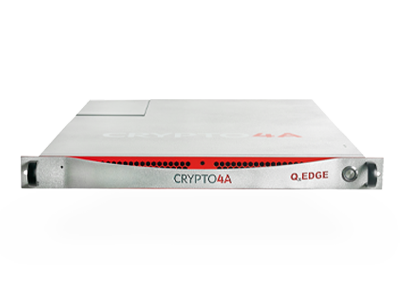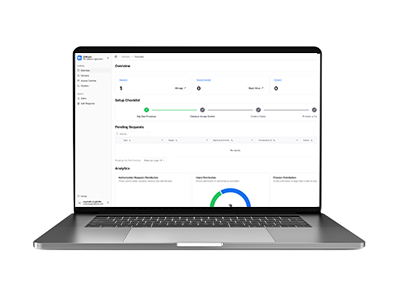The World's First Quantum-Safe HSMs and Beyond!
From QxHSM™ to QxVault™, Crypto4A delivers a unified platform of quantum-safe solutions that protect keys, identities, and secrets across modern and post-quantum infrastructures.
Empowering governments, enterprises, and cloud providers to simplify compliance, ensure sovereignty, and secure the digital future.
Explore our products
Why choose Crypto4A?
At Crypto4A, we deliver quantum-first, future-proof security platforms engineered in Canada to safeguard the world's most critical digital systems.
From confidential computing and post-quantum cryptography to multi-cloud key and secrets management, every Crypto4A solution is designed to simplify compliance, strengthen resilience, and ensure sovereignty in a rapidly evolving digital landscape.
Built and trusted in Canada, our integrated hardware and software architecture delivers unmatched cryptographic agility without vendor lock-in.
Engineered, manufactured, and assembled in Canada, trusted by governments, defense, and enterprises worldwide. We deliver sovereign, mission-critical security built to meet strict compliance and regulatory standards.
Built for post-quantum cryptography key management from day one, ensuring long-term protection against evolving threats and safeguarding digital assets for decades to come.
Maintain full ownership and control of your cryptographic keys and infrastructure. Avoid costly vendor dependencies and keep your organization secure, flexible, and compliant.
Crypto4A’s patented architecture unites hardware and software for maximum performance, crypto-agility, and resilience, delivering protection traditional systems can’t match.
From PKI and digital signatures to secure DNS and firmware signing, our comprehensive cryptographic framework safeguards every layer of your digital infrastructure.
Our confidential computing and privacy architectures secure sensitive workloads at rest, in transit, and in use, keeping your most critical data private and compliant.
Secure, unified key management across public, private, hybrid, and multi-cloud environments. Simplify compliance and accelerate secure cloud adoption with confidence.
Easily comply with regulations by securely storing, distributing, and managing secrets across their full lifecycle, reducing risk and strengthening operational resilience.

What we do best
Quantum-safe HSMs
Crypto4A delivers the world's first commercially available quantum-safe Hardware Security Modules (HSMs), purpose-built for post-quantum cryptography and modern key management. Our HSMs secure digital assets, identities, and critical infrastructure from today's evolving threats to tomorrow's quantum risks.
QxVault™ Secrets Management
QxVault™ is a fully integrated secrets management platform with a built-in Hardware Security Module (HSM). It simplifies how organizations protect and manage API keys, credentials, and digital secrets. Designed for security, sovereignty, and scalability, QxVault™ eliminates the complexity of external HSM integrations while ensuring quantum-safe protection.
Read our latest articles
Stay updated with our most recent insights

2025-12-02
NewsMicrologic and Crypto4A Launch Canada’s First Fully Sovereign, Post-Quantum-Ready Secrets Management as a Service Solution
Micrologic, the builder of a 100% sovereign and Canadian-operated cloud, and Crypto4A Technologies Inc. (Crypto4A), a leader in quantum-safe cybersecurity, are pleased to announce a strategic partnership to deliver a 100% Canadian, sovereign, and post-quantum-ready secrets management as a service solution.

2025-11-26
NewsCrypto4A Unveils QxVault™: Secrets. Simplified.
eMudhra/CertiNext joins as launch partner to deploy QxVault™ for global enterprise trust infrastructure

2025-07-23
NewsKQC and Crypto4A form Strategic Partnership
Korean Quantum Computing (KQC, CEO Joon Young Kim), a company specialized in quantum computing R&D, quantum security, and AI infrastructure operations, announced today that it has entered into a strategic partnership with Crypto4A Technologies Inc. (Crypto4A).
Contact sales team
We're here to help you with any questions or inquiries you may have





